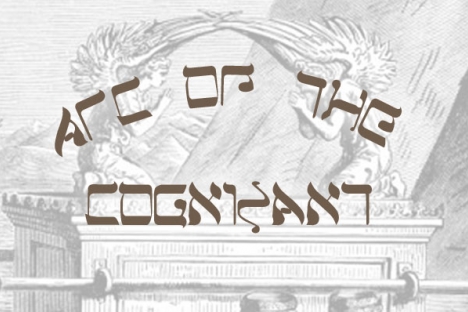COLUMN: PART THREE -- An Unprecedented Political Order Coming?
Part Three
Parts One and Two are prerequisite for understanding what I am writing about. This Part is the longest of the four sections, and is about politics specifically.
Liberalism and libertas in the Canadian mode
Let me return to the topic of liberal democracy in its twilight.
To pretend that liberalism and liberal democracy are easily defined would be foolish. The history of these is too long to be summarized in a paragraph. But the key ingredient of liberty now, for modern Western minds, is the individual and the individual’s choosing of their own manner, path, or values of life. The Latin word libertas (freedom) supplies us a word, but the concept is elastic.
The ideas condensed under one word can be very confusing. “Freedom!” as a slogan or battle-cry has been heard in Canada in a very illiberal context at Ottawa, where incivility and aggression in the name of freedom of conscience caused outrage.
[for observations on the convoy protest:
https://thetyee.ca/News/2022/03/09/Why-Convoy-Protesters-Hate-Journalists/ ]
Liberalism requires not demanding one win a victory that is eternal over one’s opponents, accepting that today’s arrangements may be changed tomorrow — by liberal democratic means and evolution of public opinion.
Adam Gopnik writes well about how this ideal of liberal applies in liberal democracy.
[see review of Gopnik: https://www.brookings.edu/opinions/cry-freedom-review-of-adam-gopniks-book-a-thousand-small-sanities/ ]
On one hand, the threat to liberal democracy comes from those who would deny that individuals are capable of being free and making good choices, but that they ought to conform to authority higher than the individual.
Alternatives
Autocrats claim to know, better than the people they rule, what is good for the latter. Xi Jinping is a prime example. Theocrats in Iran and Saudi Arabia are others. They derive authority from being superior men.
On the other hand, the threat comes from rejection of any authority at all. The leadership that Donald Trump exercises over his millions of followers is not typical authority, but he does have the power to influence actions. He is not an autocrat in the Putin mode but he taps into rage against traditional elites; his tribe hates the authority of experts and the educated. They have their reasons and their feelings.
It is a cardinal principle of liberal governance that reasoned argument produces truths: when people of goodwill with the intent to find common ground in democracy sit down together, a result can and will be found so everyone loses a little and no one wins all. Autocrats claim to know the best for all; liberals ought to be humbler.
But what if a desire for a complete victory prevails? A desire to re-educate/engineer better people by fact-driven legislation, intelligent policy, right learning, and reasonable unity? A vision of all The People understanding their interests are in harmony? Well, John Lennon wrote the anthem for this political vision in his song, Imagine. He imagines all the people arriving at the obviousness of his idea of a perfect world, and he hopes “one day you’ll join us” – and no one disagreeing.
Politics is not an arena for perfecting human being
George Lakoff, a researcher in cognitive sciences, does not believe in progress in politics by rational argumentation alone.
“Lakoff is affable and generous. In public meetings he greets every question with: "That is an extremely good question." But he cannot keep the frustration out of his voice: the left, he argues, is losing the political argument – every year, it cedes more ground to the right, under the mistaken impression that this will bring everything closer to the centre. In fact, there is no centre: the more progressives capitulate, the more boldly the conservatives express their vision, and the further to the right the mainstream moves.
The reason is that conservatives speak from an authentic moral position, and appeal to voters' values. Liberals try to argue against them using evidence; they are embarrassed by emotionality. They think that if you can just demonstrate to voters how their self-interest is served by a socially egalitarian position, that will work, and everyone will vote for them and the debate will be over. In fact, Lakoff asserts, voters don't vote for bald self-interest; self-interest fails to ignite, it inspires nothing – progressives, of all people, ought to understand this.”
https://www.theguardian.com/books/2014/feb/01/george-lakoff-interview
I make full disclosure here: I still try to hew to a scientific measure of what is fact and how the material world is governed by the regularities that the sciences of physics and neuro-biology reveal with miraculous instruments to probe matter. If a brain-and-mind scientist speaks to the question of political behaviour in humans, I listen attentively, more than I would to a journalist, metaphysician, artist, or philosopher.
It is true I believe humans have “souls”, and science has not proven that. But neither is it disproven. Science and reason take me so far, then I let my soul speak its own particular truths to me.
Having said that, I offer these observations by Lakoff and his interviewer.
Lakoff said cognitive and brain science research has shown that reason is not rational without emotion, without an over-lay of values to make sense of facts. Simply put: frames trump facts.
“We should all have a commitment to the truth”, he continued, but not to let an understanding of facts overwhelm our (= people who aim at political persuasion) job, which is to change the brains of people out there in our social, human world. “Every time you argue, you change your brain. Every time you tell somebody something else, you’re changing brains, because everything you think is physical; it’s all in the circuitry of your brain.”
Perhaps Lakoff overstates the case when he says everything you think is physical, because there is another phenomenon of equal reality in what we call the matter-and-energy universe: energy is not matter. Perhaps our thinking is energy, not a physical-matter phenomenon. But I take seriously his insistence on material brain as the foundation for thinking. Thoughts without brains to think them seem fantastical. Consciousness with no nest in matter is still for me a faith too far.
But, to return to Lakoff, politics, and speaking truth to those who disagree:
But just speaking the truth isn’t enough to convince people of new ideas. “If facts are to make sense and be perceived as urgent, they must be framed in terms of deep, deep values.” George Lakoff ’s advice is short and sweet: “To be an effective communicator, get clear on your values and start using the language of values.
“Drop the language of policy.
“People do not necessarily vote their self-interest. They vote their identity. They vote their values.”
“He believes so-called inaction and apathy should warn progressives that the conservatives are winning the communications battle between moral imperatives: “It’s time to decide, either we are all in this together or it’s every man for himself.”
https://thenarwhal.ca/if-facts-don-t-matter-what-does/
The triumph of fact and reason over opinion and emotion is not at all preordained. I wish the people I know and like, who are progressivist in politics, would get this. I wish they would take Lakoff’s advice: speak to opponents about their values.
“The Western Enlightenment project”: Democracy and Reason
Jurgen Habermas, a renowned philosopher for the Left, puts a strong case for how the political Left has been able to advance progress for democracies ever since the Western Enlightenment; he sees that time as a key event that taught humanity is a rational being. Or rather, that it began to teach us this.\
The rationalist ideal is a “project” and it must be carried forward as a work still to be perfected. Democracy requires rational beings.
An overarching project connects Habermas’s philosophical writing with his public advocacy and helps to account for his global reach: the elaboration of what he terms a theory of “communicative rationality.” When we address ourselves to another human being through language, Habermas argues, we assume the possibility of mutual intelligibility and rational persuasion. In an “ideal speech situation,” … the “unforced force of the better argument” in dialogue would foster consensus based on rational agreement. Habermas … insists that the ideal remains the prerequisite even for ordinary speech, and contains the seedbed of radical democracy. Democracy, for Habermas, is a system where un-coerced communication triumphs over naked power, where rational argument among equal citizens forms the basis of political legitimacy.
https://www.bostonreview.net/articles/brandon-bloch-learning-history/
Habermas is the political philosopher of rational democracy par excellence. And here is another philosopher, Canadian Charles Taylor, doubting rationality is enough:
… if people would only drop their appeals to [religious] revelation – which conflict, are irrational, and have a marked tendency towards violence – then perhaps the world would become a more peaceful place. That's the promise. Who'd deny its appeal?
Unless, Taylor continued, it's an illusion.And this is so because emotions are not just animal urges, but fully human parts of our outlook on the world.
https://academic.oup.com/book/9949/chapter/157304156
Believing one has a truth revealed to them, is a powerful feeling. It is very much part of religious feelings.
I know many people who think religion is for people of childlike qualities and that a mature human will recognize the childishness of having religious attachments. They seem to think they are superior to religious people by the fact of their own lack of religion. For them, religion is for humans at a primitive stage.
But feeling is not reasoned. Religion is not less than science because it originates from human feeling rather than reason. Who would declare religion has been banished from the human world by Western Enlightenment rationalism? No historian would say so. You might wish it. I do not.
Habermas asserts that progress toward his ideal democracy of rational citizens is still possible and should be promoted; Taylor is clearly skeptical that reasoned debate and the “better argument” carry the day in human affairs.
The cognitive scientist, Lakoff, provides support to Taylor, not to Habermas.
Declaring allegiance to scientific method
I am not optimistic that reason will triumph in human politics. I arrive at that by reading scientists like Lakoff who find explanation for human behaviour in our brains and minds, using the scientific method and the tools of that method (experiment, mathematics, measurement, testable hypotheses). I am still, despite my soul’s opaque yearnings, inclined to trust physical sciences. Therefore, I line up with Lakoff and Taylor (and Eisenstein in his idiosyncratic manner); progress in politics will not be created by the advance of better arguments.
The scientists of human cognition are demonstrating that humans require more than reason and fact for political choices. Progressivesin politics are doomed to be eternally frustrated, says Lakoff, if they insist on the strategy of persuading people with factual, reasonable cases. People choose political paths for causes other than hearing a good argument.
We lack any vestige of how Athenians argued and reached political decisions other than very incomplete and biased sources, in the words of their playwrights and philosophers and historians of the time. Aeschylus, Plato, and Thucydides were not recording what was actually said word-for-word in Assemblies; there was no ancient equivalent of a parliamentary Hansard. Did reasoned, factual argument win the day? What sources we have, say not. Habermas would of course say that Athens had the great disadvantage of never experiencing the 18th century Enlightenment.
I am no match for Habermas as political philosopher. But I’m not carried forward by his belief in enlightened, reasoning, benevolent humans living in harmonious politics.
John Lennon’s lyrics are lovely. The song just cannot persuade me to join the cult.
Is ‘true reality’ dependent on individual taste?
What observers fear about the failure of fact to change minds is that more than one reality might come to be the norm in politics, and no one will be able to find a middle when our reality is not consensual but dualistic.
“In Canada, at the public inquiry into the Trudeau government’s imposition of the Emergencies Act, leaders and organizers of the truckers’ convoy – Tamara Lich, Pat King, Tom Marazzo, Benjamin Dichter, James Bauder and others – had an opportunity to present their side of the story. … Whatever the findings of the inquiry commission in relation to the federal government’s invocation of the Emergencies Act, one reality cannot be reconciled with the other. … But last week, we learned our politics will need to get used to dealing with these two realities for the foreseeable future.”
https://www.theglobeandmail.com/opinion/article-a-tale-of-two-convoys-exposes-canadas-divisions/

“Get used to two realities” in Canadian democratic politics: remember this perspective on our future. It will be important in my conclusions.
Observing news, culture, people I know personally — I am becoming more sure by the year that we must get used to other people living in “realities” of their understanding that explain their behaviour, and that each of us will have to make the effort to grasp the essentials of the other’s created reality.
Alienated and Uncooperative
I personally find the argument persuasive that politics will become very, very difficult for liberal democracy once we lose the sense that citizens share a common ground for political action. When we cannot agree on facts, when alternative facts are adduced in support of contrary conclusions, Canadians will not be able to reach political consensus. Political behaviour will be mutually incomprehensible on either side of a fracture of realities.
The Ottawa convoy protest, it hardly needs to be said, was not resolved by persuading the Freedom! Folk that their views were mistaken and their demands were unacceptable to a majority of Canadians. They were not persuaded.
They believe fervently that they are the majority, and if by some means they could see that idea is false, they would say the majority knows less than the Freedom folk know. These people-who-know are in possession of the true facts and reasoned conclusions based on facts. Calling them “conspiracy nuts” is of no use at all. Again, Charles Eisenstein is one who takes the divide of realities seriously, and explicates why the two worlds are not going to come together in a harmonized single reality.
https://charleseisenstein.substack.com/p/how-it-is-going-to-be
One thing he noted about his own perceptions of reality I want to quote – because I endorse his observation fully, and urge people to be open to the experience. He says in an interview, “I am advocating a reversal of an age-old prejudice, which values the abstract over the concrete, the spirit over the flesh, and the spiritual over the material. This anti-materialism has caused tremendous harm to materiality; that is, to nature. …I also have to credit psychedelic medicines for exposing the narrowness and artificiality of what I’d until then accepted as real.”
I perceive this situation has parallels in all post-modern Western democracies now, that the pandemic has created sections of their populations alienated from each other, with greater or lesser degrees of hostility. Americans seem to be hands-down the people bursting with hostility to their fellow citizens.
The pandemic’s divisive effect, and its proliferating consequences in our trust and/or distrust in our authorities — and in each other, in science, in media, in education — has revealed a meaning in the postmodern condition that no one predicted. “We have entered the era of post-truth,” is one quip about this disturbing reality, emergent from the pandemic. There will an agreement to differ. Or an agreement that we live in parallel, equally-valid worlds. [See the philosophic foundation for this, here:
https://aeon.co/essays/on-the-advantages-of-believing-that-nothing-is-true ]
How will politics evolve in a world like this? I think it significant that popular culture as revealed in movies, TV, comics, novels, music, and drama, is comfortable and welcoming of the alternative-cosmos, parallel-universe fantasy – the Multiverse, some call it. People are fascinated by the idea. It gives them support for a notion that reality is infinitely variable, and “if my reality does not agree with yours, it may be we have different worlds to live in.”
The ancient Athenians existed in a reality radically unlike ours, as I have been at pains to establish; they never co-existed with us due to the 24 centuries of elapsed time between their era and ours.
The issue for Westerners in 2022 is the manner and method by which we can exist in parallel with people whose realities still touch on our own, even include many Westerners inside them, without violent conflict. And, as I have already said, each of us must make the effort to understand the other’s reality.
It is effortful. It is necessary.
Part Four will conclude the arguments of this long-winded Arc of the Cognizant with my best effort to make concrete some details of the future I foresee.
__________________________________________________________________
























